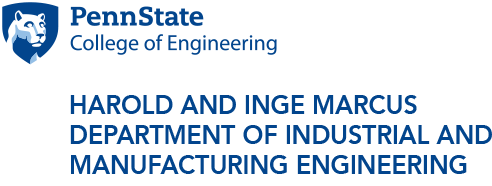Undergraduate Electives
Course descriptions can be found in the University Bulletin.
See this page to learn how courses from some minors count towards the IE major.
Science Electives – 3 credits required
- AFR 105: African Biodiversity and Conservation
(can count as Science Elective and IL) - AGECO 134N: Sustainable Agriculture Science and Policy
(may count as Science Elective or GS/Interdomain) - AGECO 144: Principles and Practices of Organic Agriculture
- ASTRO 291: Astronomical Methods and the Solar System
- BIOL 110: Biology: Basic Concepts and Biodiversity
- BIOL 133: Genetics and Evolution of the Human Species
- BIOL 141: Introductory Physiology
- BIOL 155: Introduction to the Biology of Aging
- BIOL 161: Human Anatomy and Physiology
- CHEM 112: Chemical Principles II
- EARTH 103N: Earth in the Future: Predicting Climate Change and Its Impacts Over the Next Century
(may count as Science Elective or GS/Interdomain) - EARTH 105N: Environments of Africa: Geology and Climate Change
(may count as (Science Elective and IL) or (GS/Interdomain and IL)) - EARTH 107N: Coastal Processes, Hazards and Society
(may count as Science Elective or GS/Interdomain) - ERM 210: Environmental Factors and Their Effect on Your Food Supply
- FOR 201N: Global Change and Ecosystems
- GEOG 6N: Maps and the Geospatial Revolution
(may count as Science Elective or GS/Interdomain) - GEOSC 001: Introduction to Physical Geology
- GEOSC 10: Geology of the National Parks
- GEOSC 40: The Sea Around Us
- INART 050: The Science of Music
- MATH 310: Elementary Combinatorics
- MATH 311M: Honors Concepts of Discrete Mathematics or MATH 311W: Concepts of Discrete Mathematics
- MATH 401: Introduction to Analysis I
- MATH 405: Advanced Calculus for Engineers and Scientists I
- MATH 411: Ordinary Differential Equations
- PHYS 214: General Physics: Wave Motion and Quantum Physics
Manufacturing Process Electives – 3 credits required
- IE 306: Machining Process Design & Analysis
- IE 307: Additive Manufacturing Process and Reverse Engineering
- IE 311: Principles of Solidification Processing
- IE 428: Metal Casting
Human Factors Electives – 3 credits required
- IE 408: Cognitive Work Design
- IE 418: Human/Computer Interface Design
- IE 419: Work Design – Productivity and Safety
Engineering Electives – 6 credits required
Engineering electives are intended to expose students to non-IE engineering content at the 200 level or higher. These electives serve to broaden a student’s engineering knowledge. Some of the courses may be enrollment controlled by the department offering the course. Please check with the specific department to determine their policy on letting students from other majors enroll in the course.
- CE 422 – requires approval of instructor
- CE 423 – requires approval of instructor
- CMPEN 270 (4 credit course; only 3 credits will count)
- EE 211 or EE 212 or EE 210 (4 credit course; only 3 credits will count)
- EMCH 212
- ENVSE 450 or ENVSE 470 – Controlled course; Contact ENVSE department for enrollment at the beginning of semester
- IST 210 or IST 220 – Controlled course; Contact IST department for enrollment at the beginning of semester
- MATSE 403
- ME 201
- MNG 230
- 3 credits from any combination of co-op or internship. Students must register for 1 credit (ENGR 195, 295, 395, 495) prior to or during each semester of work. Substitution for engineering elective requires the completion of 3 credit-earned rotations.
- 3 credits upon completion of the ROTC program.
(Note: EDSGN credits from the Summer by Design program can be petitioned and reviewed to see if they fulfill IE degree requirements.)
Technical Electives – 6 units required
All 6 credits must be IE courses from the Department List. No courses outside of IE will be accepted.
Technical electives serve to deepen a student’s IE knowledge. These are IE classes, typically at the 400 level, that build on required undergraduate IE courses.
Note: Students completing the Six Sigma minor can only use one of the 400-level courses: IE 433, IE 434, or IE 436 due to the policy requiring 6 credits of a minor to be unique from the major. Students completing the Six Sigma minor will have to take one IE Technical Elective that is not required for the minor.
- IE 306 *: Machining Process Design & Analysis
- IE 307 *: Additive Manufacturing Process and Reverse Engineering requirement
- IE 311 *: Principles of Solidification Processing
- IE 402: Advanced Engineering Economy
- IE 408 +: Cognitive Work Design
- IE 418 +: Human/Computer Interface Design
- IE 419 +: Work Design – Productivity and Safety
- IE 428 *: Metal Casting
- IE 433: Regression Analysis and Design of Experiments
- IE 434: Statistical Quality Control
- IE 436: Six Sigma Methodology
- IE 454: Applied Decision Analysis
- IE 456: Industrial Robot Applications
- IE 458: Manufacturing and Design of Nano Devices
- IE 466: Concurrent Engineering
- IE 467: Facility Layout and Material Handling
- IE 468: Optimization Modeling and Methods
- IE 477: Computer Control of Manufacturing Machines and Processes
- IE 478: Retail Services Engineering
- IE 479: Human Centered Product Design and Innovation EDSGN 479
- IE 494A: Honors Thesis Research
* May be used if not being used as a Manufacturing Processing elective requirement.
+ May be used if not being used as Human Factors elective requirement.
A Only Schreyer Honors students can register for IE 494 and may use 3 credits as Technical Elective. Honors students need to contact the IME Undergraduate Program Office to register for IE 494.
Academic Resources
- Academics Overview
- Academic Plan
- Program Objectives and ABET Student Outcomes
- Undergraduate Courses
- Minors
- Information Sciences and Technology for Industrial Engineering Minor
- Service Enterprise Engineering Minor
- Six Sigma Minor
- Electives
- Petition Submission
- Apply Now
- Contact Us



